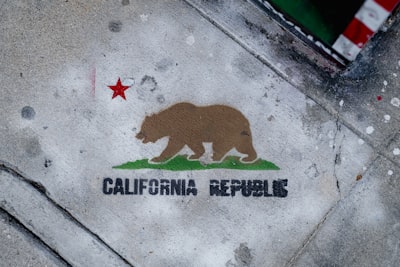The Latest Federal Immigration Operation in California: What Happened Near Los Angeles?
The recent incident involving a reported gunfire at federal immigration agents during a protest in Camarillo, near Los Angeles, has reignited debate and concern over immigration enforcement practices in California. With the FBI offering a $50,000 reward, questions abound: What led to the confrontation? How do federal and state immigration policies intersect in California? And what does this mean for immigration, cannabis operations, and community safety?
Breaking Down the Camarillo Incident: Key Facts and Context
Timeline: On July 10, 2025, ICE agents conducted a raid on a marijuana farm in Ventura County. Protests erupted, and a man allegedly fired a pistol at federal agents. Tear gas was used, and no injuries from gunfire were reported.
Why Target Marijuana Farms? Federal immigration agents discovered 10 minors working at the site without legal status, sparking a child labor investigation. Cannabis is legal in California, but federal law and immigration enforcement still apply, leading to complex jurisdictional challenges.
Public Reaction: The use of tear gas near children and the presence of heavily armed agents drew sharp criticism from political leaders and activists, highlighting ongoing tensions between local and federal authorities.
California’s Immigration Enforcement: Sanctuary Policies vs. Federal Raids
What Are Sanctuary Cities and How Do They Affect ICE Raids?
Sanctuary city policies limit local cooperation with federal immigration authorities. Los Angeles is one such city, leading to repeated legal and political disputes with the U.S. Department of Justice.
Key Issues:
- Federal lawsuits against the city for obstructing immigration law enforcement.
- Local leaders arguing that broad ICE sweeps instill fear and disrupt communities rather than targeting real threats.
Why Are Immigration Raids Increasing in 2025?
Several factors have contributed:
- Political directives at the federal level.
- Crossing points for undocumented workers in the agricultural sector.
- Growing tensions between state and federal governments on immigration priorities.
Labor Violations, Child Protection, and Cannabis Industry Risks
Why Are Immigration Raids Focusing on Marijuana Farms?
Although cannabis is legal in California, many marijuana farms hire vulnerable, undocumented workers, sometimes including minors. This raises concerns about child labor violations, exploitation, and public health.
Common Issues in the Cannabis Sector:
- Lack of federal regulation exposes farms to sudden raids.
- Labor law violations attract attention from multiple federal agencies.
- Cannabis companies face PR and legal headaches as they navigate compliance at state and federal levels.
Community Impact: Fear, Safety, and Political Fallout
How Do Raids Affect Local Communities?
- Increased anxiety and distrust among undocumented families.
- Politicians divided: some urge more transparency and restraint, others back robust enforcement.
- Strains on local resources and emergency response during high-tension events.
Children and Tear Gas: Why the Outrage?
Images of children fleeing from tear gas rapidly went viral, fueling criticism of militarized approaches to immigration. Advocates have called for increased oversight and a shift to child-centered enforcement protocols.
Conclusion: What’s Next for Immigration Enforcement in California?
As federal raids continue, the intersection of immigration, labor rights, and cannabis law will remain a flashpoint in California. Expect ongoing legal challenges, policy debates, and public activism as state and federal priorities collide.
Key Takeaway: The Camarillo incident underscores the urgent need for transparent policy, child protection, and community engagement as immigration enforcement practices evolve in real time in California.
FAQ: Federal Immigration Raids in California
Q: Why does ICE target marijuana farms in California?
A: These farms often employ undocumented workers, including minors, making them targets for both immigration and labor law enforcement.
Q: What is a sanctuary city?
A: A city that limits local cooperation with federal immigration authorities, aiming to protect undocumented residents.
Q: Is cannabis legal in California?
A: Yes, but federal restrictions still apply, especially concerning undocumented workers and underage employees.
For more about immigration policy and labor rights in California, visit trusted sources like California Immigrant Policy Center and ICE official guidelines.

Comments
No comments yet. Be the first to comment!